News Director: Frank Volpicella
“I haven’t met Frank because I am on mornings but in talking with him it’s been positive. Others say he’s a little overbearing, tells people things they already know and has strange news judgment. I am hoping he will eventually make the newsroom better.”
This person describes the overall newsroom environment as:
Organized, Unorganized, Educational, Open to Creative Control, Positive, Fun
Additional comments:
“KOKI overall has been a wonderful place for me to work. I am very happy. My last shop was horrible, under staffed, no resources and mean people. I left the industry all together and KOKI bought me back. FOX 23 doesn’t have drama. If someone doesn’t like somebody they leave it at the door. Now there are always negative parts to a newsroom, and the small but growing nags at the station are keeping them from ever being completely first. KOTV, is very strong but we’ve chipped at the lead they have. They beat us on slightly more staff and longer tenured talent.
I was going to hold off on my review but I saw a review that was slightly inaccurate and wanted to share my own experience as a producer and a little bit about the reporter experience too.
It is very true that reporters work hard at FOX 23, sometimes too hard. Dayside, Nightside and Weekend Evening reporters, (with exceptions) have to turn two separate PKG”s within the late 90 (9pm to 10:30pm) or Early 90 (5pm to 6:30pm) on weekdays. Weekends two different PKG’s at 5 and 9 or Saturday or at 5 and 9 or 10 on Sundays. Most reporters have to do some MMJ work, most are trained on it. If you need a photog, management is good about getting you one, if you work mornings you’ll get one almost always. Reporters are also allowed to do live shots at safe locations as well.
I saw this quote in a review of FOX 23, “That trickles down to producers who carry that same attitude when talking to reporters and photographers. They’re only worried about live shots and content. Your safety or you being comfortable is an after thought.”
I wanted to call out that quote. That isn’t completely true. Mornings and Weekends, we really care about reporters and photogs, we want them to be safe and comfortable. Same for the weekday noon and 10pm Producers too. The 5pm, 6pm and 9pm weekday producers are that way though, they are cold, strange and only care about themselves. They’ve never been a problem for me, but the rare times I see them, they ignore me. Some producers have only worked at FOX 23 so they don’t know how bad other places can be. We did pick up staff from the competition that calls FOX 23 the best newsroom in Tulsa to work for.
We do love crime at FOX 23, and it’s a little grating, but we also have a fluff problem. Sometimes too much of either. We skip stories that are more important sometimes and it frustrates me.
Photogs at FOX 23 are so kind, they do their job and are very positive. Reporters vary, I’m close with one who likes the station, some as you see in other reviews are jaded. We don’t hire a ton of experience anymore but it’s a problem at ALL Tulsa stations. Some of the newer people fly and others aren’t ready but survive. Morning reporters do nine live hits of the same story (unless sent to breaking news) each day and turn a different story for noon. Weekend Morning reporter does less hits but turns a PKG for later on.
Clay Loney (main anchor) (been there since 2004, we launched in 2002) is so kind, helpful, funny and knows the market, I never get to work with him but see him and talk.
Shae Rozzi (main anchor), (been there since 2013) a sweetheart, she cares about the station. Very positive and a delight to be around.
Both Clay and Shae write scripts as needed and they really care about the product.
Lynn (Weekend Evenings) also sweet. Tiffany (noon anchor), loud and crazy with a heart of gold. Naomi (weekend morning anchor) cool and calm.
As for the morning anchors; Ron Terrell is a market veteran and a nice guy. Great sense of humor, but doesn’t write scripts, and checks his scripts way too late into the show. Sometimes causes confusion.
Ah, Michelle Linn, she’s something. She really cares about the newscast each day and has a lot of experience. But she’s exhausting. Wants what she wants added in as soon as she says it. Lots of fluffy pet projects and enjoys making herself the story. Can be mean to reporters and producers if she doesn’t like something. I’m used to her at this point but not the biggest fan. On the bright side she will do rewrites if needed and they are strong. Great writer she is.
I’ll get to the biggest problem in a second but I really like Tulsa. It’s one of the best underrated news markets in the country. Tons of news here, pretty city and good weather. Great market to cover weather stories after storms.
Now as for turnover, we did have a couple of layoffs from COX after Coronavirus hit but we are staffed pretty well except for mornings. Five hours and we go down to one producer and EP only sometimes. We do a wheel format in the mornings and update when needed. Monday, and Tuesday, 2 producers, and AP and EP. Wednesday, and Thursday, 3 Producers and AP and EP. Fri 3 Producers and an EP. When fully staffed we are fine but we struggle on days without someone and it is tiring. As for the rest, we have a noon producer, a 5pm producer, 6pm producer, 9pm producer and 10pm producer. Two AP’s and four producers who fill-in. One of them is attached to mornings three days a week (and weekend mornings), other three do weekend evenings.
The sports team is kind, I came to FOX 23 on the advice of one them who had gone through a similar experience to mine.
Weather team is great, James, Michael, Laura and Mike are all delights and so kind.
Some have said that FOX 23 has bad turnover, and we do have some, but every station in Tulsa does, few people make their career here. Ours isn’t particularly worse than others. Other stations in Tulsa have it far worse than we do.
COX (even after the sale to Apollo) is one of the better companies. Better benefits than a lot of shops, especially compared to Sinclair. Lots of editorial freedom to cover what we want.
Now for the part that will keep us at second place, the managers. Frank is still so new and gets so many ideas from Magid (which COX loves), some are decent. He has the experience, just has a hard time getting them in place. Some ideas are confusing. Tina the old ND was very hands off and Frank is the complete opposite.
Greg is Managing Editor (in normal terms Assistant ND), he has been nice to me but not everybody is a fan. Lots of experience and still makes a lot of decisions in house.
Leslie (nightside EP) hired me and gave me a shot and I am always going to be grateful. Not always the best news judgment and makes us confused often. She means well.
Marti (morning EP), she is very kind and supportive, she is willing to listen. She is underprepared for her role sometimes. She can be late and missing when we need her. She gives good feedback but gets carried away over the smallest things and is afraid of Michelle. Changes scripts but forgets to tell anchors.
Communication is a struggle at FOX 23. Some don’t communicate at all, some too much and with others missing information. There has been confusion over who is anchoring on a day or who is reporting at times.
I feel I am a tiny bit underpaid for the market size but I came to the station for a decent pay bump.
Overall I am very happy at FOX 23, I know others aren’t but some have never worked anywhere else or in a toxic newsroom like I have. KOKI has toxic people and parts to it. But most people are kind and helpful and want you to do well.
This overall is a good station that is hopefully on the way to even better. Not an overly toxic newsroom by any means, just be careful around some.
I recommend coming to FOX 23 to start or continue your career.”



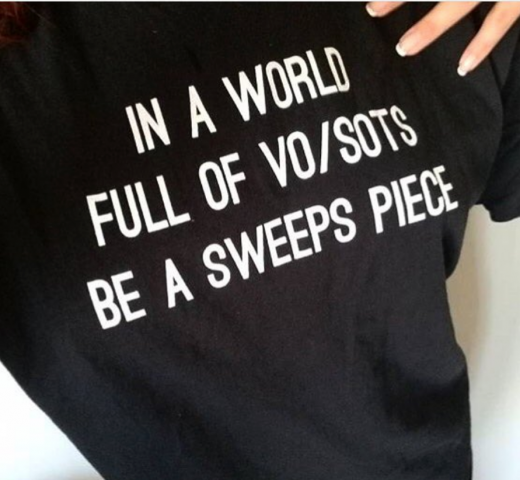
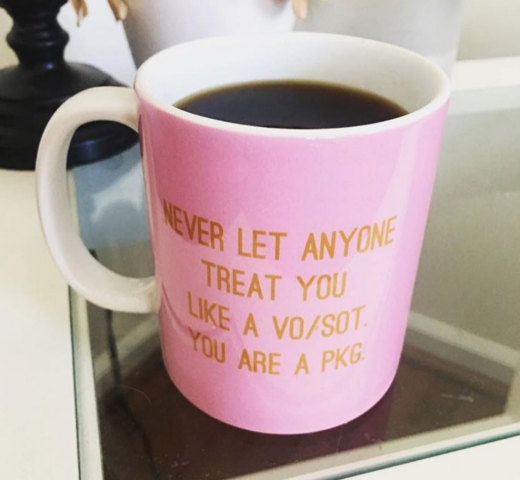


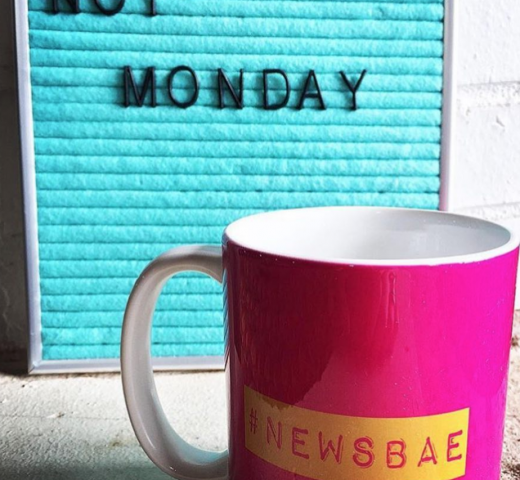

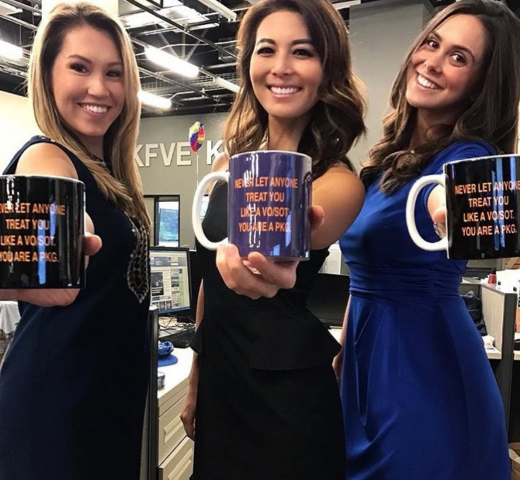
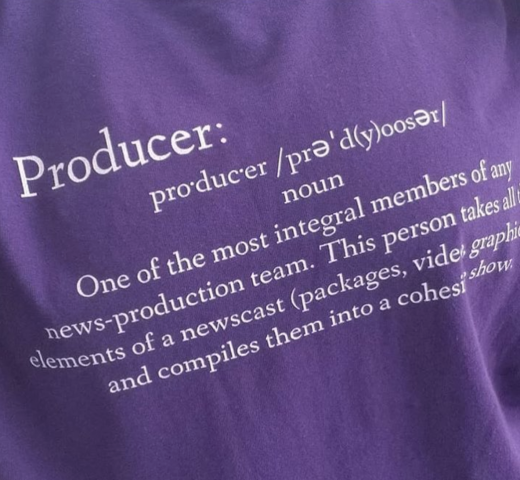

“It leaves me wondering, as I sit at my desk with a lukewarm cup of almost acceptable coffee, how do they go on? How do these victims—the sick and suffering, the fearful, the desperate—overcome this moment?”
So… you’re not making your best calls?
The stories we tell matter, but so do the ones that never make headlines.
Or it can be the total opposite. There is a reporter in Tijuana who was a legend because every night he would sleep in his car outside the Red Cross with the scanner on, waiting for anything, mainly shootings or accidents, but also any arrest that he could put on TV the next morning, and on a slow news day producers can put anything on tv, a kid busted for weed? You’d see him on TV, Homless arrested for loitering? Also TV worthy, and noone, nobody at all would stop to think about the real life implications of that kind of journalism, the cops loved him because he would put their job on TV, which they never thought of as wrong, the producers loved him because he would fill airtime, and the scanner would be this umbilical cord that would feed lazy newsrooms straight from the belly of the police HQ.
Scanner culture is a cancer on newsrooms.
I get why some of your examples are bad, but why do you think scanner culture is a cancer on newsrooms? Without the scanner we’d miss a lot, and only cover what the police tell us in their press releases.
I think without the scanner we’d only miss the police’s version of events but in real time, I understad that the scanner is just a tool and the journalist can choose how to use it, in that sense there are better tools that allow us to get to the bottom of the truth, like information access laws (for example FOIA in the US)
In the end the bigger problem is what I like to call lazy journalism, a way to do journalism in which you only get soundbites and print/brodcast those soundbites unchallenged as if they were truths. I think this is the real problem and has more to do with things like work quotas, the power of advertisers and corporate sources; but scanner culture is a facilitator of this, it might not be the cancer, but it sure helps it grow.
There are other elements to consider. Our area went to encrypted digital police (thank God fire hasn’t gone that way yet – and they’ve run into MAJOR tech woes with the switch, perhaps a bit of karma) – so people on Facebook etc. ask, even beg us to know what happened in the wreck they passed over the pass etc. – and the overwhelmed OSP etc. often don’t have that info for hours, even days. It’s like I just said somewhere else, folks sneer at ambulance-chasing media – but boy, they sure want to know where that smoke column is coming from, why the traffic made them late for work or why they heard sirens in their area or saw cops racing down their street. And they ‘don’t want to bother’ dispatchers at the 911 non-emergency number – so they ask US, on Facebook etc. And are grateful for whatever info we can provide. Sure, that used to happen by phone, but many people who would NEVER bother a newsroom by phone are fine popping us a FB note. And when we find out, they are grateful for the info – whether it’s something that becomes a news story or not. It’s an interesting new role in the world of social media. But I digress (always;-)
Everyday I always here the reports of the heroin overdoses on the scanner. Unfortunately, I’m getting used to it.
Our scanner has really helped us out sometimes, alerting us to major shootings in the area/giving some guidance on where we ought to send folks. Far too often, we mentally tune it out.